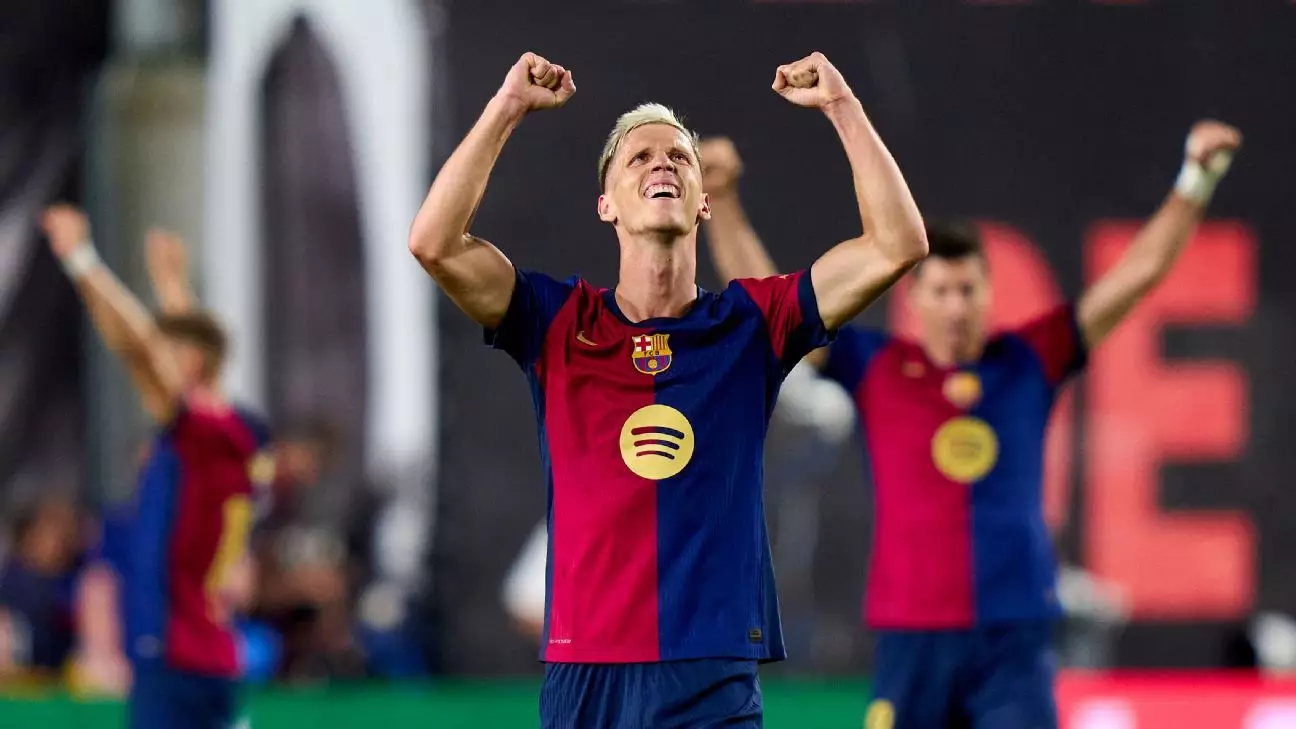The footballing realm in Spain is currently witnessing a complex judicial scenario involving renowned clubs, financial compliance, and player registrations. Recently, Dani Olmo and Pau Víctor have received provisional playing licenses as they await a comprehensive judgment from Spain’s highest sports tribunal concerning FC Barcelona’s appeals against LaLiga and the Spanish Football Federation (RFEF). This case highlights not just individual player statuses but also the intricate relationship between sports governance and financial integrity.
Legal and Financial Context
The root of this conflict traces back to LaLiga’s stringent financial fair play (FFP) regulations. On December 31, Barcelona faltered by failing to demonstrate compliance with the necessary financial structures, resulting in the cancellation of Olmo and Víctor’s registrations. The timing was critical; while Barcelona managed to rectify aspects of their financial reporting and demonstrated improved compliance just days later, issues related to player registration law became a battleground for legal interpretation. LaLiga and the RFEF issued a joint statement highlighting that players whose registrations have been invalidated within the same season cannot be reinstated, which paints a rather bleak picture for Barcelona’s efforts to reintegrate their players.
The Appeal Process
In response to this predicament, Barcelona has taken their grievances to the Consejo Superior de Deportes (CSD). They require a nuanced understanding of the regulations and have submitted a detailed 52-page report to the CSD, advocating their position. This plea illustrates a commitment to navigating the regulatory maze while contesting LaLiga’s interpretations of the existing rules. The CSD’s ruling could unfold over a protracted timeline—potentially stretching to three months—yet industry insiders remain hopeful for a quicker resolution.
While the CSD has sanctioned Olmo and Víctor for temporary play for Barcelona, the timing constrains their participation in critical matches, such as the recent Spanish Supercopa semifinal against Athletic Club. If Barcelona advances, these players would finally make their appearances in what promises to be a high-stakes final against either Real Madrid or Mallorca. Such involvement not only answers immediate competitive needs but might partially compensate for the previous bureaucratic setbacks.
The narrative surrounding Olmo and Víctor’s registrations reflects broader themes in football where financial fair play intersects with player mobility and club strategy. As clubs like Barcelona maneuver through intricate financial landscapes, they must continually adapt to regulations that serve to promote fairness in competitive integrity. The outcomes of cases like this set precedents that can reshape the interactions between clubs, players, and governing bodies in Spanish football, marking critical inflection points in both legal and financial domains.
The ongoing predicament of Dani Olmo and Pau Víctor not only underscores personal stakes but also reflects the turbulent, often contentious climate of modern football governance. The interplay of compliance, competitiveness, and legal adjudication poses significant questions for clubs seeking to balance ambition with responsibility.

